Disclaimer: It’s my opinion about the results of the survey. It may be a wrong assumption, so be alert. If you want to participate in a discussion.
Is Haxe used as a better javascript?
Maybe. One thing is sure, the web is important and for that javascript target too.
( Haxe is in top 5 transpilers https://www.slant.co/topics/101/~best-languages-that-compile-to-javascript and https://www.sitepoint.com/10-languages-compile-javascript/ )
Who uses Haxe?
Mostly experienced developers with 7 or more years of experience. They come from javascript, flash, C#, Java and PHP ecosystems and about half of them use Haxe professionally . More of them are newcomers using Haxe between 2-6 years. About 60% of them are from Europe.
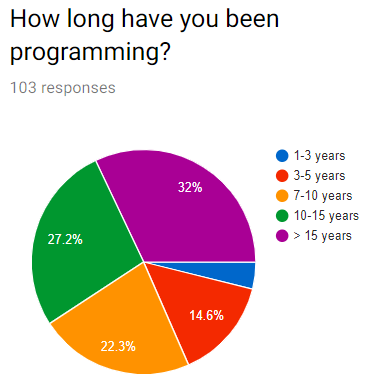
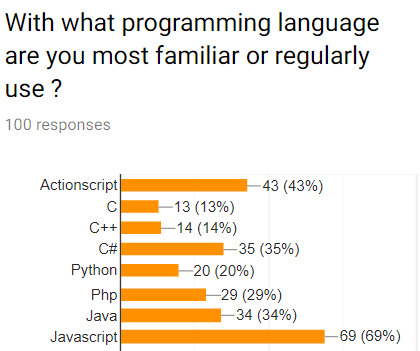
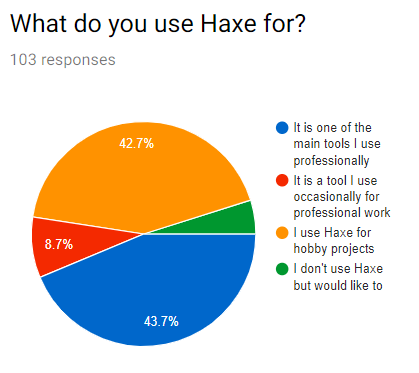
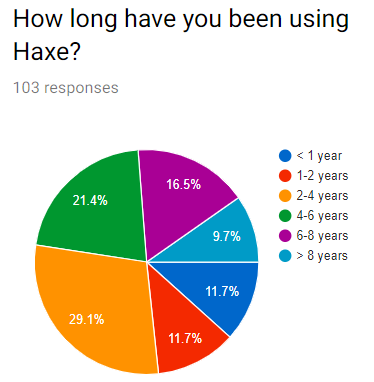

How is Haxe used?
Games are still important part of Haxe. Mostly desktop games follow by Web and Mobile games.
Many use Haxe for web development - back and front-end, but not so many use Haxe for export to PHP or python ( server-side scripting languages )
So for what reason devs used Haxe in web development? Maybe for backbone for other libraries such as node, React, Vue, Pixi, ASP, JSP and so on.
Is this make the Haxe more beautiful alternative of TypeScript and that should be one of the strongest market point of Haxe? Check here for TypeScript alternative where Haxe is already mentions: https://www.slant.co/options/378/alternatives/~typescript-alternatives
Haxe used as command-line utilities? Why not? Many use Haxe for that which make it a nice alternative of python and bash scripts.
I do not see many Haxe libs for command tools (an example is mlib and tink_cli ), and the most recent one is hxp ( https://github.com/openfl/hxp ) . So using Haxe for command-line utilities are mostly custom solution tools ( for test, compilation, deploy , etc. ) right?
After that is used in desktop and mobile applications and in sotfware Libraries.
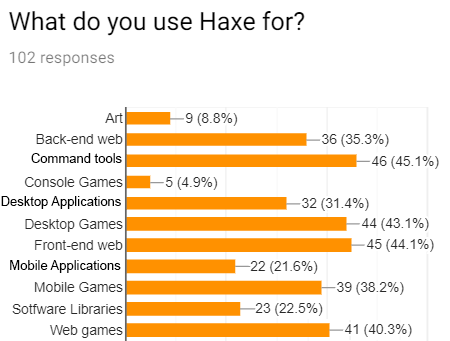
Which 2d/3d framework is popular?
The most used 2d/3d framework is OpenFL, followed by Heaps and Kha.
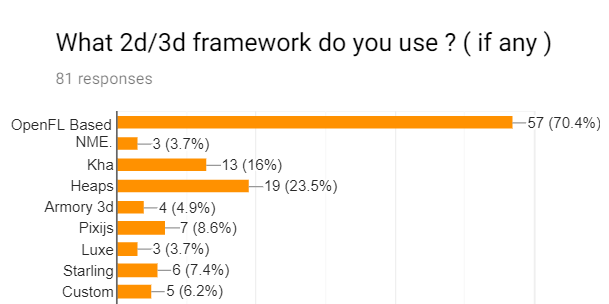
Your favorite lib?
Most lovable is Tink ( 18%) , followed by OpenFL ( 14%) . Others are HaxeFlixel (8%), Buddy (6%), Heaps(6%), Nape, HaxeUI. So Tink is a thing.
Which target do you use?
Again web with javascript is on the first position follow by C++ ( for native and mobile exports) , Neko and Flash is still a something.
For what is use neko? Is it part of fast compilation tests and deploys, console tools or used as a mod in the web servers?
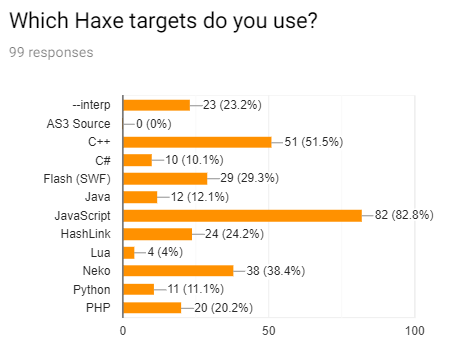
Other targets?
WebAssembly , ES6 and Swift.
Well, ES6 maybe is coming [js] ES6-class generation support by nadako · Pull Request #7806 · HaxeFoundation/haxe · GitHub
About WebAssembly I think it will come sooner or later using HashLink or Hxcpp compiled to pure WebAssembly
And there is some work in progress for Swift : GitHub - rwthompsonii/haxe-add-swift-target: adds a swift target to the haxe language. ) . If you want to know more about “What is needed to develop a compilation target?” and want to help, check here What is needed to develop a compilation target? - Haxe
Where you publish your Haxe app?
Again, mostly on the web follow up by native ( mobile and desktop)
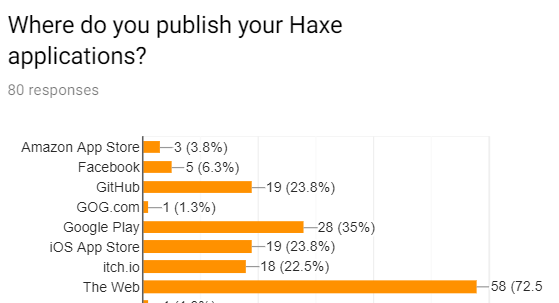
What OS do you use?
Primary desktop and mobile os is Windows and Android and preferred IDE Visual studio.
Macros are a strong part of Haxe using by 60% of developers.
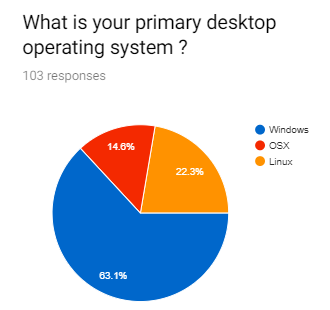

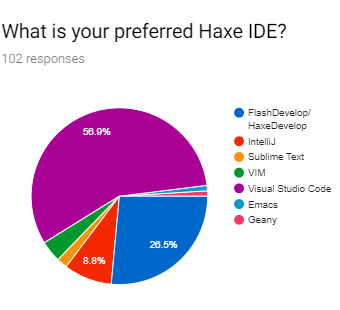
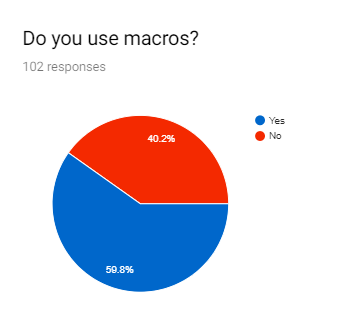
One of these for me, too
The most wanted feature - concurrency support or way to write asynchronous code ( using await, async, yield, coroutines )
There some libs for that: GitHub - haxetink/tink_await: Haxe async/await , GitHub - nadako/haxe-coroutines
Do you want to be a core feature? Maybe you should make a proposal on haxe evolution - GitHub - HaxeFoundation/haxe-evolution: Repository for maintaining proposal for changes to the Haxe programming language ?
Also, better IDE integration, better debug support and more documentation is one of the most eager features.
Conclusions, Haxe is:
Strong used in web development
Strong used for games
Strong used as a command utility tool
So what is Haxe?
It’s a language used to write games, web development and command-line utility tools. It is used as transpiler to JS by developers who looking to publish on the web and to C++ for mobile and desktop. It’s not for beginners, but anyone can find something cool and interesting for himself
One last question which bugs me. TypeScript is more popular than Haxe. According to latest PYPL is on position 11( PYPL PopularitY of Programming Language index )
What makes TypeScript better than Haxe ?
- Nothing. Haxe is better.
- The big company behind it
- Better JS integration and more feature-rich API
- Better tooling ( IDE , debug support ), big community and documentation
0 voters
Full results of survey here : Haxe Survey